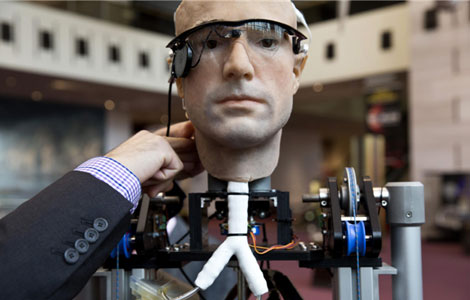

Shortly after the US Senate voted on Wednesday night to end the 16-day part shutdown of the federal government by raising its debt ceiling, President Barack Obama said there was a lot of work to be done, including the need to earn back the trust of the American people.
That is indeed true. Recent Gallup and Pew Research Center polls show that the American public's confidence in the Obama administration, the Congress and the US economy has nose-dived since the latest political and financial stalemate in Washington began. But Obama failed to even mention that the US should also try to win back the trust of the people around the world, especially if the US still wants to maintain its global leadership.
At the joint annual meeting in Washington last week, World Bank President Jim Yong Kim and International Monetary Fund Managing Director Christine Lagarde both had warned the US of the disastrous consequences of a possible debt default. And in a statement, finance ministers and central bankers representing the world's top 20 economies had urged the US to take urgent action to address short-term fiscal uncertainties.
In fact, the part shutdown of the US government and the raising of its debt limit had become such a pressing topic at some seminars that serious discussions on the global economic recovery and other matters were put on the backburner. Some moderators even vowed to ensure that their seminars were not hijacked by a debate over the US debt ceiling and government shutdown. But that often proved a difficult task given the clout of world's largest economy.
The political farce staged in Washington has hurt the US' standing in the world, as Obama also admitted in his Thursday speech. Countries such as China and Japan, the two largest holders of US Treasuries, have every reason to complain that Washington has been playing an irresponsible game by putting their assets at risk.
While many countries and businesses felt that Republicans and Democrats had hijacked their interests by haggling over the US government's debt ceiling, many participating American politicians and lawmakers lightly dismissed the possible default as no big deal.
A similar farce was played out a little more than two years ago, that is, in July 2011. Does that mean the next possible US default is just a few months away, because the Senate and House of Representatives agreed on Wednesday only to extend the debt limit until Feb 7?
Given that Republican House Speaker John Boehner vowed on Wednesday night to continue the fight and many other Republican lawmakers voiced their anger at the result, such a disgraceful and disruptive moment for the US is likely to be repeated sooner than later.
With its economy showing signs of good recovery over the past year, the US should become an important driver of the global economy, which is still struggling to emerge out of the global financial crisis which struck in 2008. As the country with the world's reserve currency, the US also has much greater responsibility than other nations to ensure the stability of the global economy. Yet American politicians chose to play a disruptive role over the past weeks. That is truly exceptional, but hopefully it is not the "exceptionalism" that the US stakes claim to.
Although the US has averted a debt default at the last minute, it has not been able to avoid damage to its credibility. The US will now find it even more difficult to lecture or convince other countries to act responsibly and unselfishly in today's intertwined global world.
That is a loss of trust, and Obama and the US government will have to try and earn that trust back.
The author, based in Washington, is deputy editor of China Daily USA. chenweihua@chinadailyusa.com
(China Daily 10/19/2013 page5)







